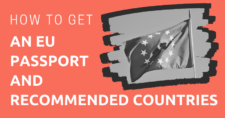
Previously, it was challenging for digital nomads to live in Europe for more than three months.
Fortunately, in recent years, many EU countries have created visas to attract digital nomads to their countries.
In this article, we will list one recommended EU country that offers visas specifically for digital nomads and also boasts a great quality of life.
All of these countries are part of the Schengen Agreement, which means you can travel around Europe without interruptions. The only exceptions are the last two options, which I will explain more about later.
This article will take approximately 20 minutes to read. Don't have the time right now? No worries. You can email the ad-free version of the article to yourself and read it later!
Disclaimer: This article may include links to products or services offered by ExpatDen’s partners, which give us commissions when you click on them. Although this may influence how they appear in the text, we only recommend solutions that we would use in your situation. Read more in our Advertising Disclosure.
Contents
Does the EU Digital Nomad Visa Allow You to Freely Live and Work in the EU?
First things first, it’s important to understand that after you obtain a digital nomad visa in these EU countries, you can freely live and work in the EU.
The digital nomad visas make traveling around Europe much easier.
Without one of these visas, you are limited to 90 days within any 180-day period in all the countries of the Schengen Agreement.
The 180 days are calculated on a rolling basis, meaning you can’t just re-enter the Schengen zone after being gone for a day. You have to wait another 90 days if you were in the Schengen zone for 90 days.
The countries included in these agreements continue to increase.
Last year, Croatia was admitted, and this year, Romania and Bulgaria are about to be included.
With one of these visas, you don’t have to worry about the 90/180-day policy.
You can also easily sail through Schengen borders with one of these visas without any issues.
So, it is worth the investment if you want to spend more than 90 days in the Schengen area.
Croatia
Croatia has recently launched a new type of permit, the “digital nomad residence permit.”
While it is not called a digital nomad visa, it essentially serves the same purpose. The Croatia digital nomad residence permit allows you to stay in Croatia for up to one year.

One of the great things about the Croatia digital nomad visa is that the required minimum income is quite low. You can also bring your family and partner here.
You can’t have Croatian clients. Nomads in Croatia usually pay taxes to their home country instead of Croatia.
Requirements
There are two main requirements for the Croatia digital nomad visa.
First: You need to have a minimum monthly income of 2,540 euros during the past six months or have 40,471 euros in your bank account.
It doesn’t matter where the income comes from. As long as you can show it in your bank statements, it’s acceptable.
Second: You need to prove your purpose as a digital nomad by showing your employment contracts with your employers. If you are a freelancer, it can be a service contract. If you are a business owner, you can show your business registration.
Other requirements include:
• Having an address in Croatia. If you haven’t lived in Croatia yet, it can be a hotel address where you plan to stay.
• Having health insurance for your entire stay in Croatia.
• Having no criminal record.
Pros
The application process is relatively straightforward. You can apply in Croatia if you are a US citizen or a citizen of any country that doesn’t require a visa to enter.
Additionally, Croatia is a gorgeous country with many beautiful cities along its vibrant coastline.
While the country has become more expensive, it is still relatively affordable for those with incomes from the United States, Canada, and Australia.
Cons
This visa is only valid for one year and cannot be extended.
You must leave before it expires; however, when any residency or other type of EU visa expires, you can re-enter and have 90 days in the Schengen Area if you are from one of the countries (USA, Canada, Australia) that is allowed 90/180 access.
Another slight issue is the requirement of a background check from your home country, which can be a hassle if you are already a nomad and have to return to your home country to obtain one.
Estonia
Estonia has become a new e-commerce hub, attracting tech entrepreneurs from around the world.
It offers a digital nomad visa that allows you to stay in Estonia for one year. While the country is great to live in with a vibrant digital nomad community, you are subject to worldwide income tax at the rate of 20% if you become an Estonian tax resident by staying in the country for more than 183 days per calendar year.
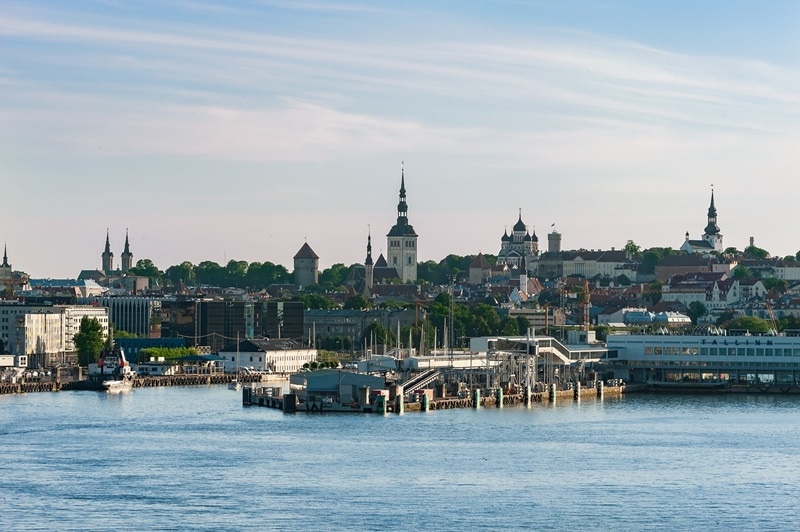
Requirements
The main requirement for obtaining an Estonian digital nomad visa is to earn at least 4,500 EUR (before tax) during the past six months, as shown by your bank statements.
You can apply for the Estonian visa both inside and outside of Estonia.
Additionally, you must have health insurance during your stay in the country.
Pros
Estonia is one of the world leaders in digitalization. Estonia is proactive with businesses regarding e-residency, so if you are running a business, you should look into that.
Estonia also boasts a relatively high quality of life, with some of the fastest internet speeds in Europe.
Public transportation in Tallinn is free for residents.
Cons
Estonian winters are very harsh. Like the Croatian digital nomad visa, the Estonian digital nomad visa is only valid for one year.
You can apply for another one, but it does not add time towards becoming a long-term or permanent resident. Estonian is one of the most challenging languages in Europe.
Fortunately, English proficiency is high among educated individuals, but connecting with locals on a more personal level can be difficult if you don’t speak Estonian.
And if you are a tax resident of Estonia, you need to pay 20% income tax.
Hungary
The Hungarian White Card is the official name for the Digital Nomad Visa in Hungary. It is designed for individuals who work remotely and wish to reside in Hungary for up to one year.

The Hungarian Digital Nomad Visa allows you to live and work in Hungary while being employed by a foreign company or conducting freelance work. By living here as a digital nomad, you are subject to 15% personal income tax.
There are two parts to this application, the first taking place in your home country, and the second part upon your arrival in Hungary.
Requirements
You need a minimum monthly income of 2,000 EUR and must show that you have earned this amount in the last six months.
You also must prove that you are employed or a freelancer and purchase health insurance.
Pros
While the Hungarian digital nomad visa is only valid for a year, you can extend it for another year, giving you two years in total.
Budapest is a world-class city with much to offer. It has a vibrant expat scene and one of Europe’s most efficient and affordable public transportation systems.
There are multiple spa towns throughout the country as well. It’s one of the digital nomad visas with a lower income threshold and relatively lower tax rates compared to others on this list.
If you decide to settle longer in Hungary and make an investment, the taxes for foreign investors are very low.
Cons
The Hungarian language is one of the most difficult in the world.
Many Hungarians outside of Budapest only speak Hungarian. So, communication can be difficult, especially when you need medical assistance and services.
The application process has two parts: one must be completed in your home country at a Hungarian consulate, and the second part must be completed once you arrive in Hungary. Many people find some of the bureaucracy in Hungary a bit complicated for non-Hungarian speakers.
Therefore, it is recommended to find someone who speaks Hungarian. However, many people offer services to help expats in Budapest for a fair price.
Malta
Malta, a small country in the Mediterranean Sea, offers a digital nomad visa for freelancers or remote workers who wish to work online in this beautiful country.
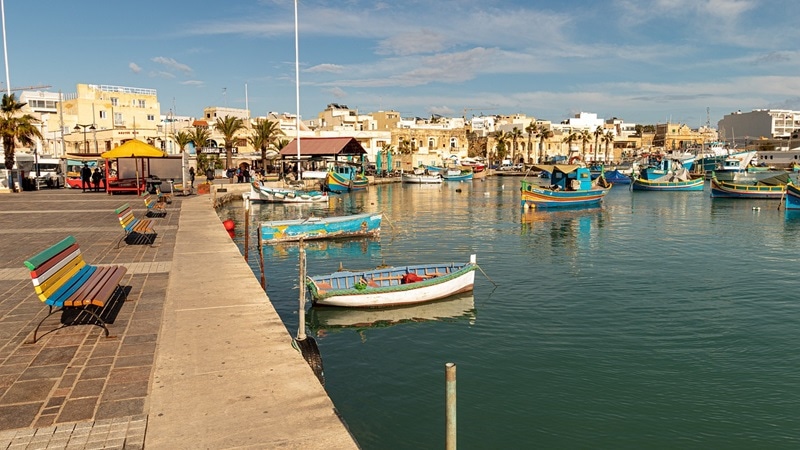
The Malta digital nomad visa is valid for one year and can be extended twice, giving you a total of three years.
Additionally, the tax rate for digital nomads in Malta is 10%, one of the lowest.
Requirements
Like digital nomad visas from other countries, you must be employed by a company outside Malta.
This means, even if you are a freelancer or a remote worker, you cannot have a Maltese company as your client.
Regarding financial requirements, you must have a yearly gross income of 32,500 EUR.
You also must have a rental agreement and insurance for the duration of your stay in Malta.
The application fee is 300 euros, and the process is conducted online. The application takes about 60 days. You can do this in Malta if you are already there legally.
Pros
The Malta digital nomad visa can provide you with a total of three years in the country, which is one of the longest periods of stay we have seen so far.
Additionally, the 10% personal income tax in Malta is quite low compared to other countries in Europe.
Malta is also an ideal location for those who dislike winter, as its winters are very mild.
Many European remote workers choose to stay there during the winter months. Malta is also popular for the golden visa program.
English is an official language in Malta, so there is no language barrier. You can comfortably handle day-to-day business and complex situations such as bureaucratic matters and hospital visits in English.
Cons
The visa application isn’t cheap, costing 300 euros.
Malta is also not a very cheap country to live in compared to many of these options, although it’s still cheaper than countries in Northern and Western Europe.
Since it’s a small country, there also isn’t much to do there.
Greece
Greece offers a digital nomad visa that is valid for one year. It is extendable and can provide you with three years in the country in total.
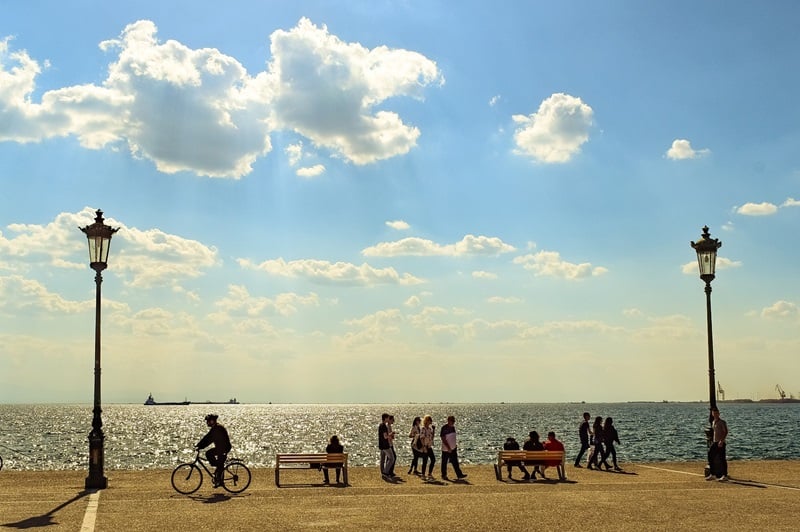
If you become a tax resident of Greece by living there for more than six months a year, you are subject to personal income tax. Greece has a progressive tax rate, depending on your income.
For example, the rate for those who earn 32,000-40,000 euros a year is 36%.
Requirements
Similar to other countries, you must be employed by a company outside of Greece or have clients outside of Greece.
You also need to have a minimum income of 3,500 euros after taxes.
Pros
Obtaining a digital nomad visa in Greece is relatively easy. The application process only takes about 10 days. And you can stay in Greece for three years with a digital nomad visa.
Greece is one of the most hospitable countries for tourists, offering stunning beaches and some of Europe’s most beautiful natural landscapes. Its cost of living is relatively low, especially on the mainland.
Cons
If you are looking for a fast-paced life, or even a regular pace, Greece might not be suitable for you. Things tend to move slowly here, even in the capital.
The bureaucracy can be challenging as well. This is a common complaint among Greeks and expats.
Living in Greece during the high season can also be difficult. Prices get inflated, and tourists pour in. It becomes extremely hot in the summer months.
The taxes for nomads are higher than many of the others on the list; however, digital nomads are fully entitled to the same social services as everyone else.
Spain
Spain offers a digital nomad visa that allows you to live there for three years, which can be renewed, giving you a total of five years in Spain.
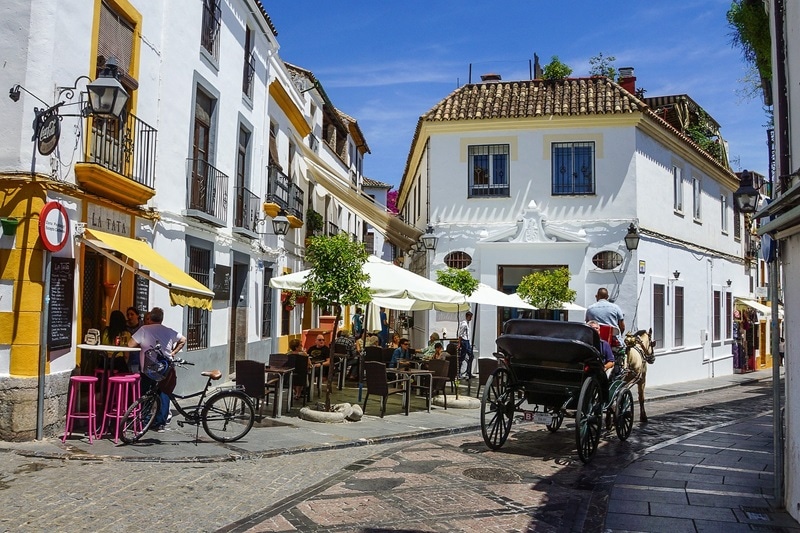
There are two ways to obtain it. First, you can enter Spain with a tourist visa and apply for your three-year permit from there.
Alternatively, you can obtain a one-year permit from a Spanish embassy or consulate in your country of residence and extend it to three years once you arrive in Spain.
Requirements
You must be able to show that you have worked for your company for at least three months and have a contract for at least one year.
Freelancers must prove they have worked with clients for at least three months before applying.
The income requirement is 2,100 EUR. You also need to have at least 25,000 EUR in your bank account.
Health insurance is also mandatory.
Pros
You can stay in Spain with a digital nomad visa for a maximum of five years.
Also, you can be absent for up to six months, so you can have a base in Europe and leave for half the year.
Remote workers pay less tax (14%) than regular residents for four years.
Spain has an excellent healthcare system and social services. The language is relatively easy for English speakers compared to other countries.
Spain offers a variety of cities and landscapes. There is something for everyone. You can choose a bustling city, a quiet beach town, or live in the mountainous north, which offers a lot of greenery.
Cons
The approval and renewal process can be lengthy, according to reports.
All paperwork is required to be translated into Spanish by an official interpreter.
While discussing the language issue, it can be even more challenging if you don’t know Spanish.
Spain has one of the lowest rates of English proficiency in Europe. However, luckily, Spanish is one of the easier languages for English speakers to learn compared to most of these options.
However, dealing with government offices, hospitals, and landlords can present a challenge even to an intermediate Spanish speaker.
Portugal
Portugal offers a variety of visa options for digital nomads, probably the most on this list.
The most popular one is the D8 visa, which is the digital nomad visa. There is also a D7 visa for passive income, similar to the D8 visa, used by some digital nomads.

The main difference is that the D8 visa focuses more on your current income, while the D7 is more about the amount of funds you can prove you already have.
The tax rate in Portugal, and the resident income tax rates, range between 14.5% and 48% in 2023. Your individual tax rate will depend on the income you earned in a single year and if you are married. On average, it’s around 20 percent for most digital nomads.
Requirements
For the digital nomad visa, you must provide financial proof confirming that you make at least 3,040 EUR per month for the past three months.
A bank statement indicating a minimum balance of €36,480 is also required.
You also need a housing contract and a clean criminal record.
Pros
The digital nomad visa in Portugal can be extended continuously and lead to potential permanent residence. It is even a pathway to citizenship.
This is an excellent option for someone who wants to be a digital nomad in Europe for the long term and maintain a semi-permanent base in Europe, even while traveling.
Portugal also boasts excellent weather and a decent cost of living.
It is one of the top choices for American digital nomads and has become a very popular place for Americans to retire.
Cons
Prices are rising in Portugal.
This country also caters to many who are on the “golden visa” track, which includes wealthy Americans and Russians.
Housing prices are becoming unsustainable for the local population and even for less affluent nomads. This has also resulted in some prejudice and resentment from locals.
The waits for extensions and renewals are reported to be lengthy.
Portugal is planning to cut some of the tax breaks for nomads.
Other Options
In addition to the aforementioned countries, there are other options for digital nomads in Europe.
While these countries do not technically have a digital nomad visa, digital nomads can stay there visa-free for up to a year.
Georgia
Georgia offers almost all nationalities visa-free access for a year. They just have to leave the country for one day and return for another year. This is a perfect loophole if you don’t want to deal with obtaining a visa.

Pros
Georgia is a beautiful and underrated country with much to see. It’s very economical to travel around.
Prices are still reasonable, although increasing. It has become a popular destination for digital nomads from all over the world. It also boasts a fantastic gastronomic culture.
Georgians are very hospitable people. They are an aspiring NATO and EU member state, so they are welcoming to Westerners.
Cons
You must pay US taxes or taxes to wherever your residency is if you just use the visa-free access. You don’t have access to public services as if you were a resident.
Also, since Russia’s war with Ukraine, wealthy Russians fleeing Russia have caused prices to swell to nearly European levels in popular areas of Tbilisi. The language is also very challenging.
Albania
While Albania is not in the European Union, it can be a good choice for digital nomads as it still costs less than most of Europe.

Also, instead of needing a visa, US citizens do not need any visa for one year. It can serve as an excellent place to go while waiting to reset the 90/180-day Schengen clock.
Pros
A very positive aspect that many US citizens have found is that Albania is one of Europe’s most pro-American countries due to US assistance with Kosovo during its conflict with Serbia in the 1990s.
Even if you are someone from the US who doesn’t agree with US politics, it can be refreshing not to constantly hear criticism of the US from locals, as is the case in some other countries.
Cons
Prices are becoming unsustainable for locals and low-earning nomads. The one-year visa-free access is only applicable to US citizens, so it doesn’t apply to other English-speaking nomads.
Quick Notes to US Citizens
If you are a U.S. citizen, you should keep in mind that you usually do not need to pay tax in the U.S. if you are a tax resident of other countries and make less than US$120,000 a year.
However, you still need to file your U.S. taxes.
For more information, read our guide to U.S. tax for U.S. expats.
Now, on to You
This is a current list of popular countries in Europe with a digital nomad visa.
There are many options right now (much more than in Asia). Each option gives you one to three years to live in that country as a digital nomad.
After that, you need to move to a new country.
In case you plan to stay in any country long-term, you might want to look for other residency options instead. As you know, digital nomad visas are mainly for digital nomads who are on the move all the time.
Also, please note that digital nomad visas are a new concept worldwide. Information and requirements are constantly changing.
So, you should recheck with the embassy website again before making an application.







